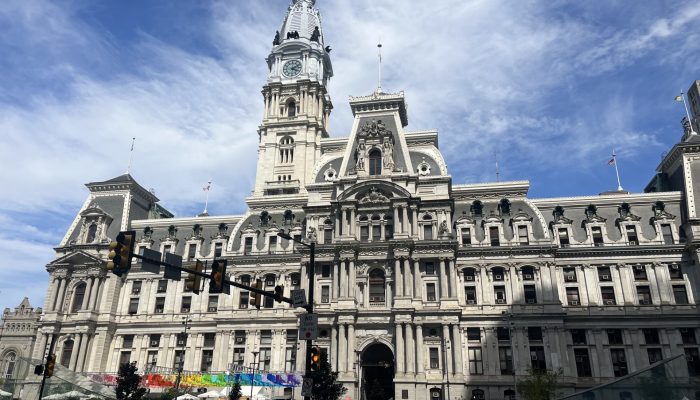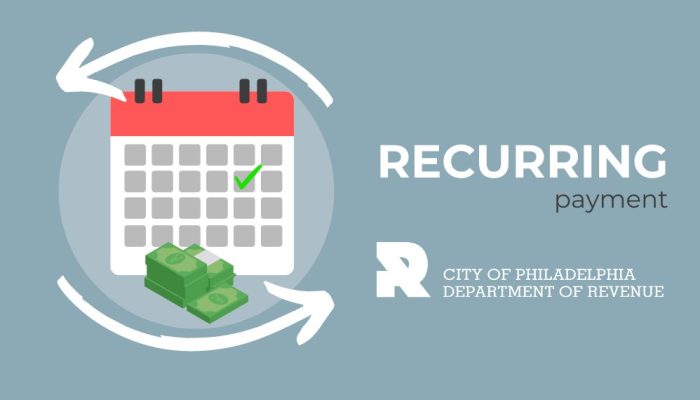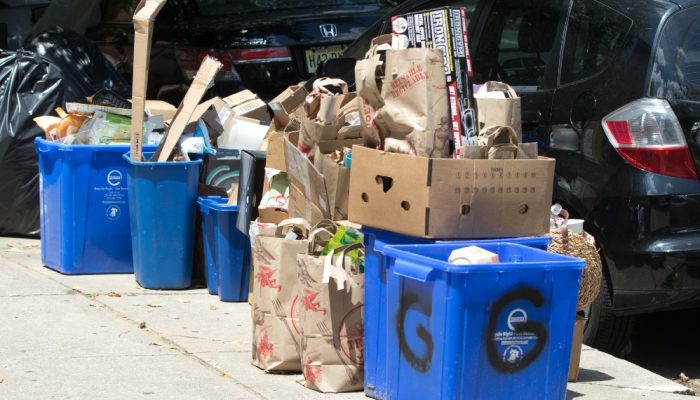Now that we’ve started working on (and breaking) our New Year’s resolutions, the Philadelphia Department of Revenue is also taking the time to reflect on the past. Resolutions are often all about figures: dollars, pounds, hours. As we gear-up for the decade ahead, here are six figures that show how the Department has made significant strides towards improving internal processes, collection rates, and customer service in the last 10 years.
96.1% of Real Estate Taxes were paid the year they were billed
In 2017 (the most recent year with complete data), the collection rate for current year Real Estate Tax bills reached its highest point. For each dollar of Real Estate Taxes billed, the Department collected 96 cents within the year the bill was issued. This means we have fewer balances to collect in future years. Collecting prior year taxes can be an expensive process, for the City and taxpayer. Since 2010, the annual percentage of taxes billed and collected in the same year has steadily increased. The collection rate in 2010 was only 87.2%. Each 1% increase in the collection rate means an additional $12.5 million for essential city services and the School District.
-34.5% Overall decline in active delinquent principal outstanding since 2010‡
Including all City and School District taxes collected by the Department, total active delinquent principal balances reached their lowest level in 2019. In the last 10 years, the Department has reduced the outstanding value of delinquent principal balances by more than a third, from $410 million to $269 million. During this time, the Department has improved collection methods, promoted more flexible payment plans, and expanded online payment options to encourage on-time payments.
‡Active principal includes all balances within the last ten years for Real Estate Tax, and the last five years for all other taxes
50,714 Number of residential water accounts participating in assistance programs in 2018
The Water Revenue Bureau (WRB) offers several solutions to reduce the cost of water bills to budget-sensitive residents. Customer Assistance Program (CAP) is a one stop shop for eligible seniors, low-income households, and accountholders experiencing financial, personal, or health hardships to get a more affordable water bill. Through CAP, customers now only need to fill out one application to get assistance that fits their situation.
Water bill assistance is not limited to residential customers. The Philadelphia Water Department and WRB also provide several grants and loans to help with plumbing repairs and maintenance for both residential and commercial customers.
$169.8 Million Amount of residential Real Estate Tax relief offered in 2020
Prior to the Actual Value Initiative (AVI) in 2014, only a few programs like Senior Citizen Tax Freeze and the Disabled Veteran Real Estate Tax exemption existed. The addition of the Longtime Owner Occupants Program and Homestead Exemption have added more than $160 million in taxpayer relief. The largest of these programs is the Homestead Exemption. Every homeowner in Philadelphia is eligible to receive a homestead exemption on their primary residence. This program saves the average homeowner around $629 on their annual Real Estate Tax bill.
80,000+ is the number of water customers signed up for paperless billing in the first 3 months
The WRB launched paperless bills for water bills in October 2019. About 13% of water customers now receive their bills electronically, surpassing our goal of 8% in the first year. The services allows customers to receive bills online and pay electronically, including the option to set-up automatic payments. At the same time this reduces the number of paper bills that the department mails out each month.
43% The Department of Revenue’s net promoter score at the end of the 2019 fiscal year
The “Net Promoter Score” is a metric that tracks the overall satisfaction with an agency’s services. Since September 2016, when the metric was first tracked, the Department’s net promoter score has increased from 13% to 43%. As of June 2019, more customers now have a favorable impression of Revenue’s services than an unfavorable one. While we still have room for improvement, our rising score shows that a century-old agency can still learn new tricks.
Photo credit: George Widman / visitphilly.com




